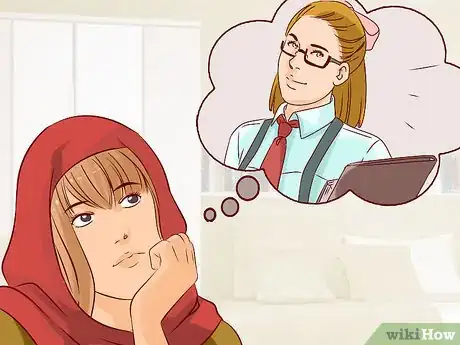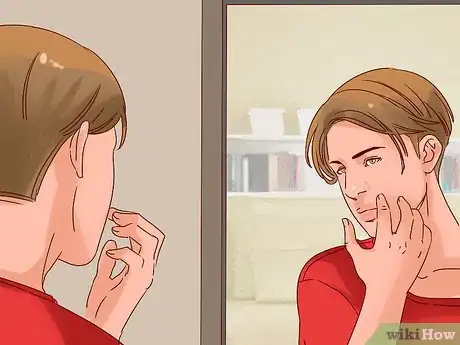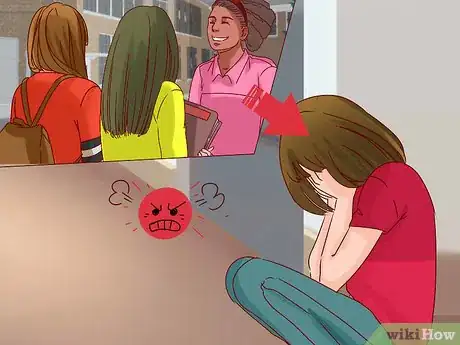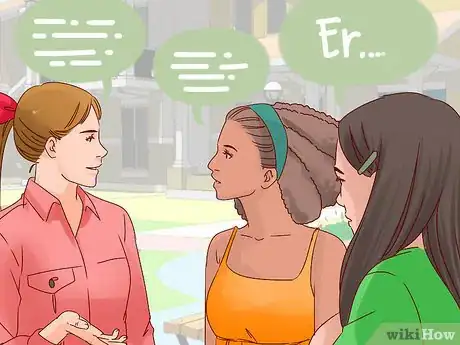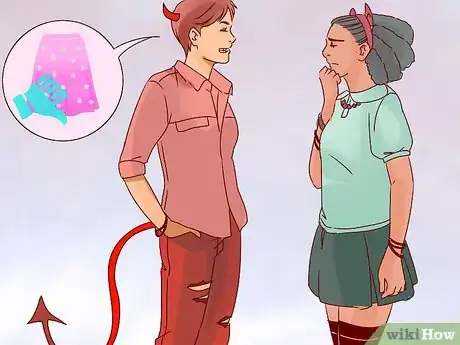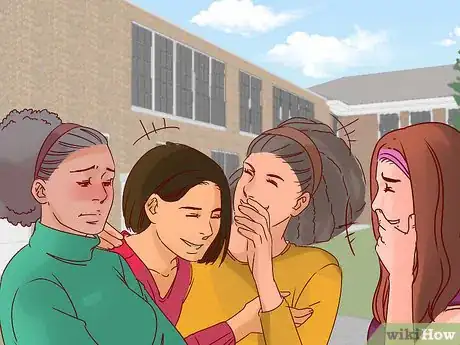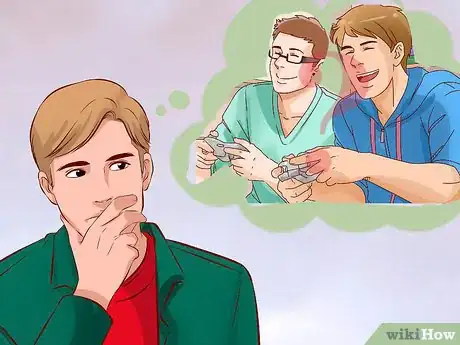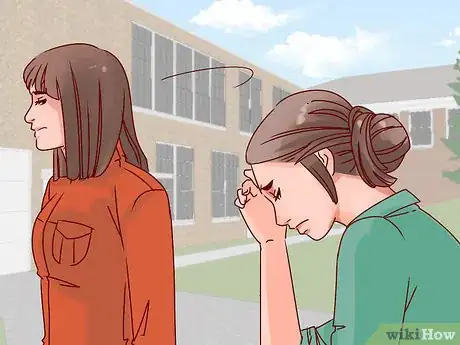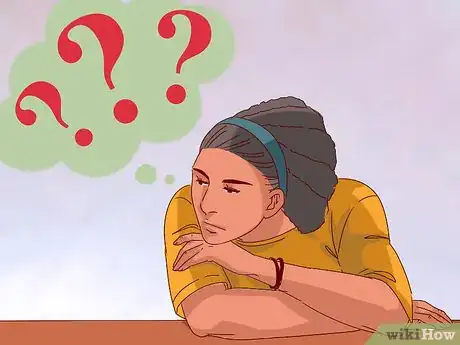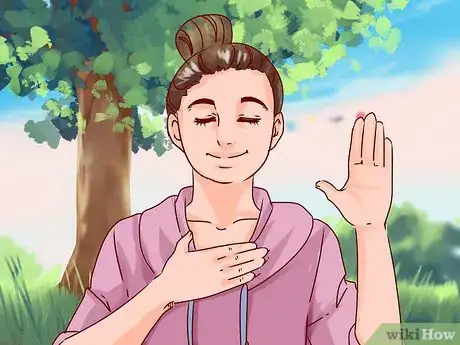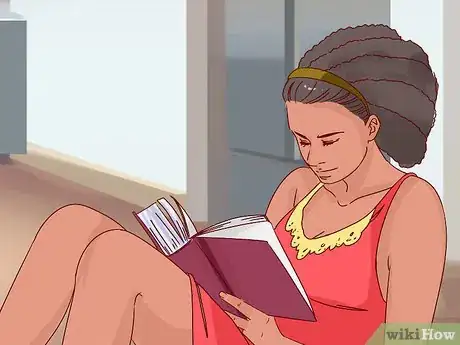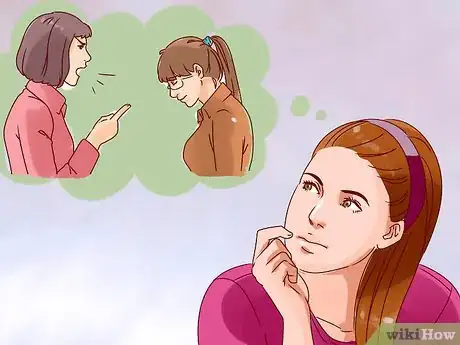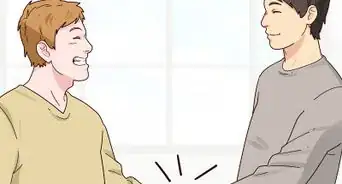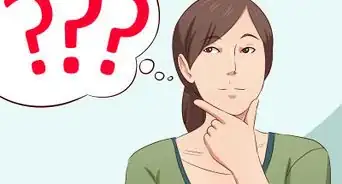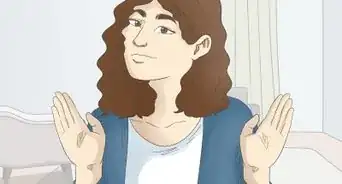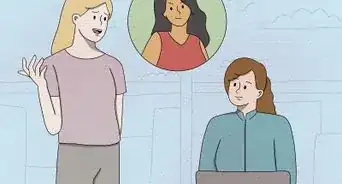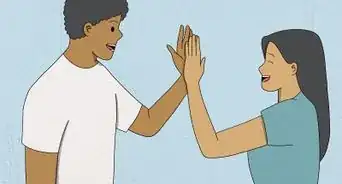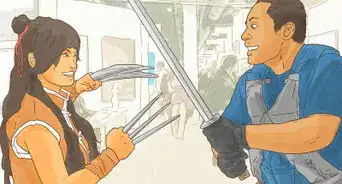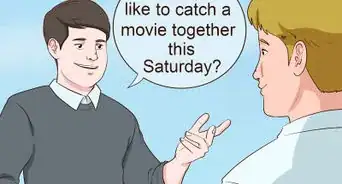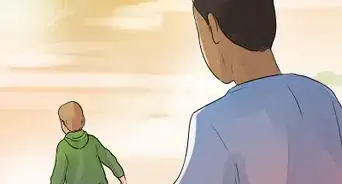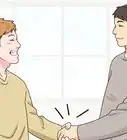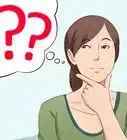This article was co-authored by Jessica George, MA, CHt. Jessica George is a Marriage and Family Therapist, Certified Professional Master Life Coach, and Co-Founder of Evolve Therapy Coaching based in Glendale, California. With more than 20 years of experience, she specializes in hybrid therapy and coaching services, couples counseling, and clinical hypnotherapy. Jessica holds a Bachelor’s degree from The University of California, Santa Barbara and an MA in Counseling Psychology and Talk Therapy from Ryokan College. Jessica is trained in the Imago technique and the Gottman method for couples therapy. She also earned a Professional Life-Coach Certification from The Fowler Academy and an Infinite Possibilities Relationship Certification. She is a member of the International Board of Coaches and Practitioners (IBCP).
This article has been viewed 106,280 times.
Sometimes, friendships change for the worse. You may also realize a longstanding friendship has not been healthy for you. In these cases, it may be a good idea to work on ending a friendship. Think about your feelings. If you consistently feel negative about yourself or drained after hanging out with someone, maybe you want to end the friendship. Also consider the relationship itself. Does it feel one-sided? Do you not feel supported? If so, you may want to think about finding another friend. If you decide to end things, do so smoothly. Be direct and honest about ending the relationship and find a way to move forward.
Steps
Considering Your Feelings
-
1Think about how you feel around this person. If a friendship needs to end, you may notice you experience negative feelings when around your friend. Think about how you feel when you hang out with this friend. If the feelings you're experiencing are not positive, it may be time to ditch this friend.[1]
- Do you feel like you can be yourself? People lose themselves in toxic relationships. If a friendship is becoming toxic, you may feel you have to censor yourself or your ideas, or lower your personal needs and standards. You may always feel like you're on guard or walking on eggshells around this person.
- You may feel completely different around this person than you do around others. You may dislike the way you act and behave when that person is present.
-
2Evaluate your sense of self worth. A bad friendship can affect your feelings about yourself. Pause and evaluate your own self esteem. If someone is wearing on you, you may feel bad about yourself.[2]
- Does your friend make you feel like you can't do anything right? Your friend may, for example, always point out your flaws or demand you do things differently. You may feel like your behavior is under constant scrutiny around this person. After hanging out with this person, you may go home feeling bad about yourself.
- A negative friendship can adversely affect your sense of self worth. When expectations of your behavior are unreasonably high, you may begin to experience negative thoughts about yourself habitually.
Advertisement -
3Consider your emotions after interacting with the friend. A bad friendship can affect your mood and even your physical health. After interacting with this person, take stock of how you're feeling.[3]
- After seeing this person, you may experience negative emotions. You may feel depressed, anxious, or stressed after seeing the friend.
- Negative emotions can manifest themselves in physical symptoms. You may feel physically tired or even notice aches and pains like a headache after being in this person's presence.
-
4Evaluate whether you feel supported. You may not feel you have a lot of emotional support if you're in a negative friendship. Think about how you feel when you have a bad day. Do you feel inclined to reach out to this person, or do you feel like you're better off not bothering?[4] [5]
- In a negative friendship, everything may feel like it's about the other person. Your friend may constantly talk about their own problems and be dismissive of yours.
- When you try to converse with the person, even casually, you may find it's difficult to get a word in. The person may not allow you to discuss yourself and your own issues as they constantly talk about themselves.
Thinking About the Relationship
-
1Think about whether your friend criticizes you. Negative friendships are often very critical. Think about how your friend treats you. Do you frequently feel like your behavior and personality are being scrutinized?[6]
- You may make attempts to grow and change. For example, you may try to apply for a new job or expand your social circle. Instead of being supportive, a toxic friend may put down your attempts to grow. For example, when you get a new job, your friend may say something like, "Good luck, but I'm not sure you can handle that much responsibility."
- You may also just get general criticism. The friend may, for example, mock your personality, your sense of style, and other aspects of yourself. You may always feel ashamed and inferior around this person.
-
2Consider whether you ever feel embarrassed by your friend. A negative friend may frequently engage in poor behavior. It may get to the point you get nervous taking this friend out in public. You may cringe at the idea of your friend meeting other friends or family members.[7]
- Everyone has embarrassing moments and good friends forgive one another for indiscretions. However, a toxic friend may habitually do and say things to embarrass you. Every public outing may come with the potential for poor behavior.
- Do you feel like you have to hide this friend? You may, for example, not want to take this friend out to meet your parents or ignore her calls and texts when you hang out with others.
-
3Reflect on whether you enjoy spending time with your friend. A healthy friendship should be mutually beneficial. When you spend time with your friend, you should feel happy and energized. In a negative friendship, you may feel nervous or unhappy when you see them.[8]
- Do you look forward to seeing this person? You may find yourself dreading get togethers. It may get to the point you screen texts and calls.
- You may never feel 100% comfortable or happy around this person. You may find yourself on edge the entire time, waiting for something to go wrong. Even when things go right with this person, you may not really enjoy it as you spent the whole time waiting for a potential outburst.
-
4Think about how this person relates to others. A toxic friend has trouble with empathy. This person may be unable to relate or engage with other people's problems. They may be caught up in themselves and not seem to care what others are going through or experiencing.[9]
- You may feel you can't get a word in with this person. You may try to vent about what you're experiencing, only to have them go on about their own issues.
- For example, you may say something about being stressed at work. In response, your friend may say something like, "That's nothing in comparison to my job" and begin to talk about his or her work issues.
Ending Things Smoothly
-
1Face the truth of the situation. If you've realized you want to ditch a friend, the first thing you should do is face this fact. Try to step out of denial and realize a friendship has run its course.[10]
- Ask yourself difficult questions regarding why you're staying in the relationship. Do you feel sorry for this person? Do you feel obligated to continue the friendship simply because it's been going on for so long? Try to identify any reasons you're considering not ending things.
- Accept the fact you have to do what's right for you. There's nothing wrong with ending a friendship if it becomes negative and draining.
-
2Be honest and direct. You may be tempted to simply let the friendship slip away. However, it's generally better to be direct. This can give you and your friend closure.[11]
- You can plan a sit down talk if you want. However, you can also just send a text or email explaining how you feel. Try to formulate well and concisely what you need to say, and be direct without blaming the other person. You can use what are known as "I"-statements, in which you emphasize your feelings over objecting judgments.
- For example, say something like, "I feel a lack of connection between the two of us because we're two different people." Let the person know you appreciated the time you had, but you need to move on. For example, "I think it's better if we go our separate ways. I'll always value the time we had together as friends, and everything I learned from you."
-
3Do things to make yourself feel better. It can be as difficult to lose a friend as breaking up with a romantic partner. Therefore, you should do some things to fill the void. Take your mind off the loss by filling your days with activities.[12]
- Try to take up a new hobby. Start running or swimming. Begin a craft project. Read a book.
-
4Identify why you stayed with the friendship. If you had to ditch a friend, you want to make sure you don't get into a negative relationship again. All relationships have benefits. There may be a reason you're drawn to a certain type of person.[13]
- What were the good things about the relationship? Maybe you liked someone pushing you out of your comfort zone. Maybe you enjoyed having a friend you competed with in some ways.
- Maybe this person reminds of someone from your past. For example, maybe your relationship with your mother was rocky. While your friend does not treat you well, he or she may remind you of your mother. In the future, try to be more aware of why you're drawn to the people you're drawn to.
Community Q&A
-
QuestionWhat do you do if your friend has been talking about you behind your back, and when you confront them, they deny it?
 Community AnswerThis person may not have a lot of respect for you. Is this problem is beginning to affect your self esteem or sense of self worth, you may want to look for another friend.
Community AnswerThis person may not have a lot of respect for you. Is this problem is beginning to affect your self esteem or sense of self worth, you may want to look for another friend. -
QuestionWhat if they fit all the criteria but ditching them requires ditching other good friends?
 Community AnswerYou may not actually have to make a choice. Good friends will stick by you, even if the situation is awkward. Talk to your friends about your relationship with this person. Do not be vindictive, but simply explain why you personally want to end this friendship. Assure your friends they don't have to take sides and you're happy to still hang out with them without the friend you're ditching.
Community AnswerYou may not actually have to make a choice. Good friends will stick by you, even if the situation is awkward. Talk to your friends about your relationship with this person. Do not be vindictive, but simply explain why you personally want to end this friendship. Assure your friends they don't have to take sides and you're happy to still hang out with them without the friend you're ditching.
References
- ↑ https://www.psychologytoday.com/blog/the-time-cure/201308/toxic-relationships
- ↑ https://www.psychologytoday.com/blog/the-time-cure/201308/toxic-relationships
- ↑ http://www.prevention.com/sex/when-end-friendship
- ↑ http://www.hercampus.com/life/family-friends/5-signs-its-time-end-friendship
- ↑ https://www.psychologytoday.com/blog/the-time-cure/201308/toxic-relationships
- ↑ https://www.psychologytoday.com/blog/the-time-cure/201308/toxic-relationships
- ↑ http://www.prevention.com/sex/when-end-friendship
- ↑ https://www.psychologytoday.com/blog/the-time-cure/201308/toxic-relationships
- ↑ https://www.psychologytoday.com/blog/the-time-cure/201308/toxic-relationships
- ↑ https://www.psychologytoday.com/blog/the-time-cure/201308/toxic-relationships
- ↑ https://www.psychologytoday.com/blog/lifetime-connections/201509/is-it-time-end-friendship
- ↑ https://www.psychologytoday.com/blog/the-time-cure/201308/toxic-relationships
- ↑ https://www.psychologytoday.com/blog/the-time-cure/201308/toxic-relationships
